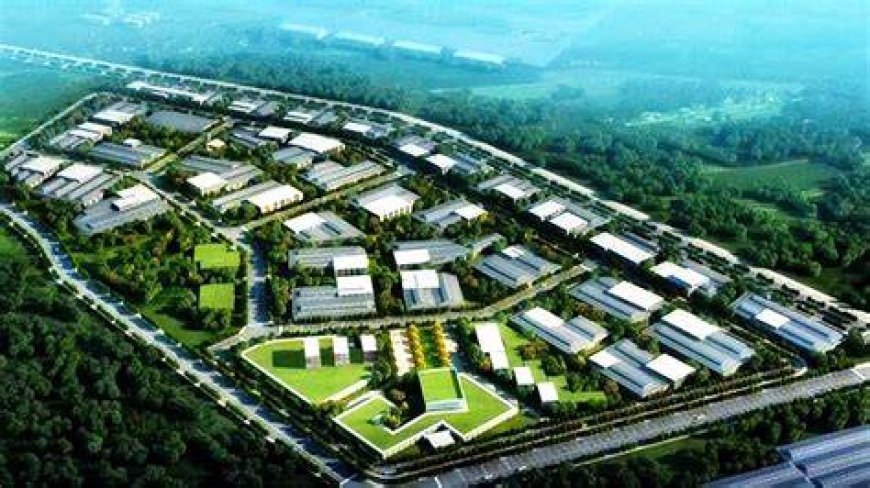Special Economic Zones (SEZs): Do They Work or Just Benefit the Elite?
Are Special Economic Zones (SEZs) driving real economic growth or just benefiting big corporations? Explore the pros, cons, and hidden truths behind SEZs.

The SEZ Dream: A Promise of Growth and Prosperity
Imagine a land where businesses thrive, taxes are minimal, and regulations don’t suffocate innovation. That’s the promise of Special Economic Zones (SEZs). Governments pitch them as engines of economic growth, foreign investment, and job creation. But here’s the real question—are SEZs truly benefiting the country, or are they just playgrounds for big corporations and the ultra-rich?
What Exactly Are SEZs?
SEZs are designated areas with special economic rules—lower taxes, relaxed labor laws, and fewer bureaucratic hurdles. The idea is simple: attract investors, boost exports, and create jobs. Countries like China, India, and the UAE have embraced SEZs as a strategy for rapid economic development. India, for example, introduced its SEZ policy in 2000, and since then, hundreds have popped up across the country.
The Success Stories: When SEZs Work
Some SEZs have undeniably been game-changers:
-
Shenzhen, China: Once a fishing village, Shenzhen became a global tech hub after being designated as an SEZ in 1980. Today, it’s home to tech giants like Huawei and Tencent.
-
Dubai Internet City: A thriving hub for tech startups, offering an attractive business-friendly environment that has drawn in companies like Microsoft and Google.
-
Singapore’s Free Trade Zones: A magnet for international trade due to efficient regulations and strategic location.
These examples prove that, when done right, SEZs can drive innovation, increase exports, and create jobs. But does this success apply everywhere?
The Dark Side: Are SEZs Just Corporate Tax Havens?
While SEZs promise economic prosperity, they also come with serious downsides:
1. Corporate Free Ride at the Cost of the Taxpayer
Big corporations often enjoy tax holidays and heavy incentives, but what happens when these incentives expire? Many companies simply shut shop and move elsewhere, leaving behind empty buildings and unemployed workers. This “SEZ hopping” is a common practice.
2. Land Grabs and Forced Evictions
SEZs require massive land acquisitions, and often, it’s the poor who pay the price. In India, many farmers and small landowners have been displaced for SEZ projects, often without fair compensation. What starts as a development dream turns into a nightmare for those forced to leave their homes.
3. Job Creation Myth
While SEZs are supposed to generate employment, many of the jobs are temporary or low-paying. High-end industries set up shop, but they rarely offer employment opportunities to local, low-skilled workers.
4. Loss of Local Businesses
With relaxed import-export policies, SEZs encourage global players to dominate the market, often pushing local businesses into oblivion. The result? A handful of big players control the market, and the promised “economic boom” never trickles down.
So, Are SEZs Worth It?
The effectiveness of SEZs depends on how they’re implemented. A few key factors can determine whether they truly help the economy or just serve as tax shelters for the elite:
-
Transparency in Land Acquisition: SEZs should not come at the cost of displacing poor communities without proper compensation.
-
Clear Exit Policies: Companies should not be allowed to exploit tax benefits and then abandon projects when the perks dry up.
-
Genuine Job Creation: SEZs must ensure that they create jobs that benefit local communities, not just a select group of highly skilled professionals.
-
Balanced Tax Policies: While tax incentives attract investment, they should not drain government revenues in the long run.
The Bottom Line
SEZs are a double-edged sword. When planned with long-term growth in mind, they can transform economies. But when used as short-term tax loopholes for corporations, they widen inequality and hurt local businesses. The real challenge is designing SEZ policies that create sustainable growth rather than just serving as elite business havens.
So, the next time someone praises SEZs as the ultimate economic miracle, ask them—who really benefits?
What's Your Reaction?




















































